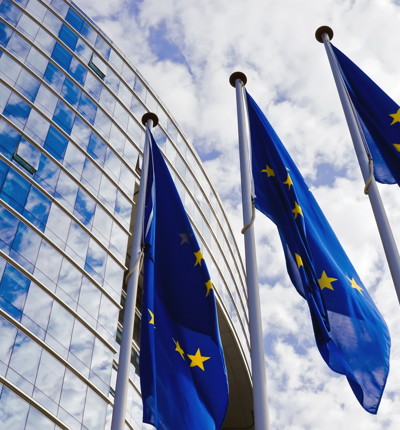
The EU Corporate Due Diligence and Corporate Accountability Directive
Oliver Holland and Anna Barr look at the EU Corporate Due Diligence and Corporate Accountability Directive and discuss how it would affect corporate accountability in the UK.
Posted on 16 April 2021
In recent years, the European Commission and the European Parliament have been pushing for legislation that would provide for mandatory corporate due diligence on human rights and environmental issues. Mandatory corporate due diligence can make companies responsible for identifying corporate activities that may directly or indirectly have a negative impact on human rights or the environment and can hold companies to account for these harmful activities.
On 10 March 2021, a draft directive on Corporate Due Diligence and Corporate Accountability was adopted by the EU Parliament. This now has the potential to become EU law, following which it would need to be implemented by Member States within two years.
An EU-wide due diligence law has been on the cards for some time and, if implemented, it would have a significant impact on corporate accountability across Europe. With the UK now outside the EU, there is no obligation to implement the directive, but it is still likely to have bearing on future developments on corporate due diligence in the UK. We take a look at the content of the draft directive and its potential effects in the UK.
Draft Directive on Due Diligence and Corporate Accountability
What is the aim of the directive?
The draft directive aims to prevent and protect against potential or actual negative impacts on human rights, the environment and good governance in supply chains. It also seeks to ensure that businesses can be held accountable for such impacts, and that anyone who has suffered harm can effectively exercise the right to a fair trial before a court and make sure that any injustices are put right in accordance with national law.
Who would the directive apply to?
The directive would apply to all businesses incorporated, domiciled, or established in the EU, as well as to non-EU enterprises doing business in the EU (such as selling goods or services). Accordingly, regardless of where the company is headquartered, if it does business in the EU and is of any substantial size, the directive would likely apply.
What would the directive require?
The directive would oblige EU Member States to make laws to require that businesses carry out effective due diligence in relation to human rights, the environment and good governance in their operations and business relationships. This would apply throughout a company’s supply chain, including relationships not only with suppliers, but with customers and end-users.
Businesses would be required to perform ongoing monitoring to identify and assess whether their operations and business relationships cause or contribute to any human rights, environmental or governance risks.
If a company was happy that it does not cause or contribute to any relevant risks, it would have to publish a statement to confirm this, along with its risk assessment, which would be subject to review if new risks emerge. Where risks are identified, companies would be required to establish and publish a due diligence strategy and evaluate the effectiveness and appropriateness of the strategy annually.
How would people report a problem?
Companies would be required to establish a grievance process in relation to any human rights, environmental, or governance risks. This grievance process would need to comply with the “effectiveness criteria” set out in the United Nations Guiding Principle 31 (including the requirements that it must be legitimate, accessible, predictable, safe, equitable, transparent, rights-compatible, and adaptable).
How would companies put things right?
Member States would be required to ensure that any business that identifies that it has caused or contributed to harm must provide for or co-operate with a process to put things right. Potentially appropriate remedies could include financial and non-financial compensation, public apologies, and restitution, as well as the prevention of additional harm through guarantees of non-repetition.
Importantly, Member States must ensure that such remedies would not prevent those affected from bringing civil proceedings under national laws.
Potential effects of the directive on the UK
There is currently no overarching legal or regulatory regime to make human rights due diligence and reporting mandatory for businesses in the UK. Section 54 of the Modern Slavery Act 2015 creates a requirement for businesses operating in the UK with an annual turnover of more than £36 million to produce an annual slavery and human trafficking statement. Its effectiveness is restricted as there is no enforcement regime to make sure businesses produce a statement (according to a UK government report in 2020, approximately 40% of organisations are failing to comply with the provisions of the Act.).
The absence of effective mandatory human rights due diligence and reporting causes difficulties for those bringing claims against British multinational companies for harm suffered at the hands of their overseas operations. This is because, among other things, the burden of proof is on the person who has been harmed to prove that the defendant owed him or her a duty of care. They must do this by producing evidence to show the extent to which the UK-headquartered business knew or ought to have known of the risk of the harm alleged, and the steps that could or should have been taken to prevent or mitigate that harm. This is challenging because corporate documents are often crucial to providing evidence for claims and multinational defendants often contend that they have no control over documents in the possession of overseas subsidiaries.
As the proposed directive would apply to businesses selling goods and services in the EU single market it would still likely affect many British companies. Those companies would be required to publish information regarding their assessments of potential human rights and environmental impacts and what steps they had taken to mitigate any adverse impacts. Early identification of the risk of human rights abuses occurring and taking reasonable steps to avoid such risks could prevent human rights abuses from occurring in the first place. It could also assist people seeking to enforce their rights against UK multinationals as key information would be more readily accessible. Whether or not the UK follows the EU in strengthening due diligence laws, the EU’s progressive draft directive can only benefit those harmed by the operations of multinational companies and would lead to greater transparency and accountability.



